SP's Aviation - ISSUE No 10-11
Previous Issue Next Issue

The insightful articles, inspiring narrations and analytical perspectives presented by the Editorial Team, establish an alluring connect with the reader. My compliments and best wishes to SP Guide Publications.

"Over the past 60 years, the growth of SP Guide Publications has mirrored the rising stature of Indian Navy. Its well-researched and informative magazines on Defence and Aerospace sector have served to shape an educated opinion of our military personnel, policy makers and the public alike. I wish SP's Publication team continued success, fair winds and following seas in all future endeavour!"

Since, its inception in 1964, SP Guide Publications has consistently demonstrated commitment to high-quality journalism in the aerospace and defence sectors, earning a well-deserved reputation as Asia's largest media house in this domain. I wish SP Guide Publications continued success in its pursuit of excellence.

What the IAF needs to ask itself is whether the pace of transformation is fast enough for it to not only catch up with the existing and emerging challenges, but also to keep its tryst to be a world class aerospace power in the foreseeable future
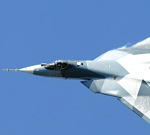
In the coming decade, the IAF has to acquire the capability to deter the PLAAF from contemplating ‘active defence’ in the skies over India or challenge the freedom of the IAF to patrol India’s area of interest in the Indian Ocean
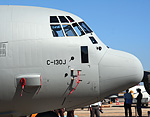
India’s transformation into a prosperous and developed country would depend largely on how well the IAF defends its national interests through effective deterrence and rapid response if and when needed
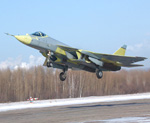
The combat aircraft fleet of the IAF, other than the Su-30MKI, is largely of pre-1985 vintage and is nearly two generations behind the technology required to meet the challenges that the nation is expected to face in the future
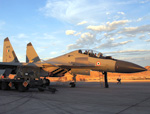
The choices made now and in the near future will decide if India would ever become a country capable of producing her own high-tech weapons and aircraft or remain a power with an uncertain future
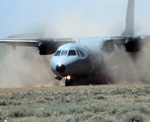
There is an imperative need to balance the transport fleet with the induction of at least four to six squadrons of aircraft of five to ten tonne capacity
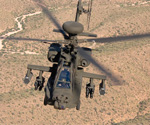
The IAF is in dire need of newer and more helicopters. The government has recognised this and the total number of new helicopter inductions planned up to 2020 is 300, almost as much as the current holding.
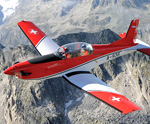
The Indian Air Force will be soon getting deliveries of 75 Pilatus PC-7 Mk ll turbo basic trainer from Switzerland.
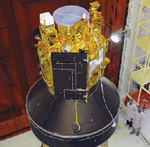
Given the huge cost of space weaponry, it is unlikely that India can afford programmes aimed primarily at military uses of space, at least for now.
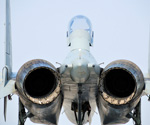
The IAF would have to keep working ceaselessly to continue to augment its air defence resources as also pool in all relevant national resources in its quest to fully live up to its air defence responsibilities enshrined in the Union War Book
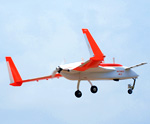
With the exponentially rising costs of a fighter aircraft and doubts about its survivability, the IAF should consider all viable options
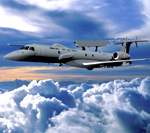
Over the years, the IAF has been consciously making efforts to upscale its electronic warfare capability.
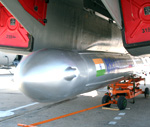
In a decade, the IAF would undergo rapid changes and would be totally different from what it is today. Previously, upgrades were generally associated with aircraft in their mid-life or later.
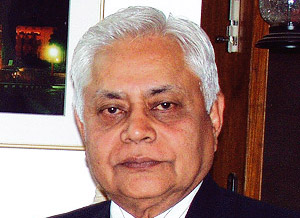
Hopefully, the IAF does not end up in a situation where with its efforts to re-engine the Jaguar fleet not having fructified, it is compelled to adopt the third option of retiring the fleet prematurely
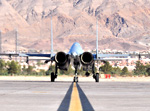
The order to a private entity for modernisation of airfield infrastructure is a step in the right direction that will give an opening to the private industry to make inroads into the large defence contracts
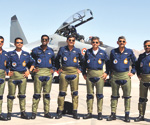
The value of HRD cannot be easily quantified, but its impact in a unit however small, is immense. To be able to effectively guide a junior, both on the professional and personal front, is the essence of HRD.

Interview with Puneet Kaura, Executive Director, Samtel Display Systems Limited

Although the number of corporate jets in the country is still relatively low, the major business aviation manufacturers that currently dominate the global scene, like Bombardier, Cessna, Dassault Aviation, Embraer, Gulfstream and Hawker Beechcraft, are all bullish about the Indian market
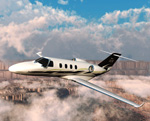
The first flight of Cessna’s newly launched light business jet Citation M2 is likely to be in the first half of 2012
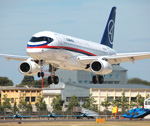
The 30- to 50-seat regional jets prevalent in the past were overtaken by higher-capacity planes like the Bombardier CRJ700/900 and Embraer 170/190.
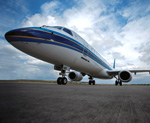
Timing may be everything in determining who supplies India’s airlines with smaller capacity jets.

Honeywell has offered India its latest engine technology to support the next generation of the Indian Air Force (IAF) aircraft. Powering IAF’s Jaguar fighters with the F125IN engine is hailed as another building block in the remarkable partnership between Honeywell and India.
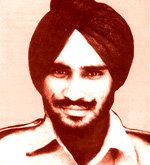
Sekhon lost his life fighting bravely and valiantly against heavy odds. He had managed to engage four enemy Sabres singlehandedly to the very end.

It is of paramount importance to augment IAF’s entire range of capabilities – from rocketry to combat and transport aircraft, to UAVs and heliborne operations, besides ushering in an era of vigorous R&D with active private sector participation

The Sixth International Conference on Energising Indian Aerospace was attended by senior officers of the IAF, CAPS, CII, strategic analysts, captains of industry, and media representatives from India and abroad
‘The IAF is moving towards full spectrum capabilities. These seminars have been on for six years. Now it is time to stop talking and start doing.’

In the absence of genuine, complete and meaningful integration of the Service Headquarters with the MoD